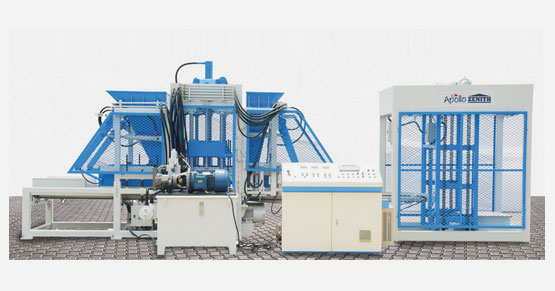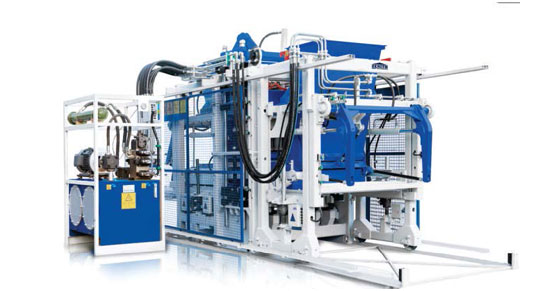Table of Contents
Affordable housing is a cornerstone of sustainable development, addressing the need for accessible and cost-effective living spaces. One of the most critical components in the construction of such projects is the concrete block making machine.
These machines streamline the production of concrete blocks, offering efficiency, cost savings, and high-quality construction materials. This article explores the significance of concrete block making machines in affordable housing projects, focusing on their types, benefits, and impact on the construction industry.
The Role of Concrete Blocks in Affordable Housing
Concrete blocks are versatile building materials widely used in construction for their strength, durability, and affordability. These blocks form the foundation of walls, pavements, and other structural components, making them ideal for large-scale housing projects.
Advantages of Using Concrete Blocks
- Cost-Effectiveness: Concrete blocks are cheaper than traditional bricks, reducing overall construction costs.
- Durability: They can withstand harsh weather conditions, ensuring long-lasting structures.
- Energy Efficiency: Solid concrete blocks provide better insulation, reducing heating and cooling costs.
- Eco-Friendly: Blocks are made from readily available materials like cement, sand, and aggregates, minimizing environmental impact.
Concrete block making machines are specialized equipment designed to produce concrete blocks in various shapes and sizes. They combine raw materials, such as cement and aggregates, into a homogenous mix, which is then compacted and molded into blocks.

Types of Concrete Block Making Machines
1. Manual Concrete Block Machines
- Operated manually, suitable for small-scale production.
- Cost-effective but labor-intensive.
- Ideal for regions with limited access to electricity.
2. Fully Automatic Concrete Block Machines
- Highly automated with minimal human intervention.
- Equipped with advanced control systems.
- Suitable for large-scale production, ensuring consistency and efficiency.
3. Solid Concrete Block Making Machines
- Specifically designed to produce solid blocks for load-bearing walls.
- Known for their durability and precision.
The Impact of Automatic Concrete Block Machines
Automatic machines, such as the automatic concrete block making machine, have revolutionized the industry by enhancing production speed and quality.
Benefits of Automation
- Consistency: Ensures uniform size and strength in all blocks.
- High Production Rate: Capable of producing thousands of blocks daily, meeting the demands of large housing projects.
- Labor Efficiency: Reduces reliance on manual labor, minimizing errors and costs.
- Customization: Can produce blocks of various shapes, sizes, and textures to meet specific project needs.
Concrete Block Making Equipment: A Key to Efficiency
Modern concrete block making equipment incorporates advanced features like hydraulic systems, mixers, and automated feeders.
Features of Advanced Equipment
- Hydraulic Systems: Provide high compression strength, ensuring durable blocks.
- Mixing Systems: Ensure a consistent mix of raw materials for uniform quality.
- Vibration Technology: Enhances the compactness of blocks, improving their load-bearing capacity.

Applications in Affordable Housing Projects
1. Low-Cost Housing
Concrete block makers enable the production of cost-effective blocks, ensuring budget-friendly construction for low-income groups.
2. Disaster-Resilient Structures
Blocks made from advanced machines provide superior durability, making them ideal for disaster-prone areas.
3. Rural and Urban Projects
From rural housing schemes to urban redevelopment projects, concrete block machines cater to diverse housing needs.
Benefits of Using Concrete Block Making Machines
1. Cost Savings
Machines reduce material wastage and labor costs, making construction more affordable.
2. Speed of Construction
High-capacity machines accelerate the production process, ensuring timely project completion.
3. Customization
Machines offer the flexibility to produce blocks of various designs and specifications.
4. Environmental Sustainability
Eco-friendly materials and energy-efficient operations align with green construction practices.
5. Scalability
Whether for small-scale rural projects or large urban developments, machines can be scaled to meet project demands.
Challenges in Adopting Concrete Block Making Machines
1. High Initial Investment
Purchasing advanced machines, such as an automatic concrete block machine, requires substantial upfront costs.
2. Skilled Workforce
Operating and maintaining modern machines necessitates technical expertise, which may not always be available.
3. Logistics
Transporting machines and raw materials to remote areas can be challenging.
Energy Requirements
Automated machines require consistent power supply, which may be difficult in regions with limited infrastructure.
Solutions to Overcome Challenges
1. Government Incentives
Subsidies and loans for affordable housing projects can help contractors invest in modern machinery.
2. Training Programs
Manufacturers and suppliers can offer training to operators, ensuring efficient machine usage.
3. Portable Machines
Mobile and compact machines reduce logistical challenges by enabling on-site production.
4. Renewable Energy Integration
Solar-powered machines can overcome energy supply issues in remote areas.
Future Trends in Concrete Block Making Machines
1. Smart Technology
IoT-enabled machines provide real-time monitoring and predictive maintenance, ensuring optimal performance.
2. Eco-Friendly Machines
Incorporating recycled materials and reducing energy consumption will enhance sustainability.
3. Customization and Design Flexibility
Advanced machines will support the creation of innovative designs, catering to architectural aesthetics.
4. Expansion into Emerging Markets
With urbanization on the rise, the demand for concrete block machines is set to grow in developing regions.
Conclusion
Concrete block making machines are indispensable in the construction of affordable housing, offering efficiency, cost savings, and quality assurance. From manual machines for small projects to advanced automatic concrete block making machines for large-scale developments, these tools cater to diverse needs.
By overcoming challenges and embracing innovation, the construction industry can leverage these machines to address the growing demand for affordable and sustainable housing. As technology evolves, the potential of concrete block machines will only expand, shaping the future of construction worldwide.
Read More Articles on Concrete Block Making Machines
Table of Contents


